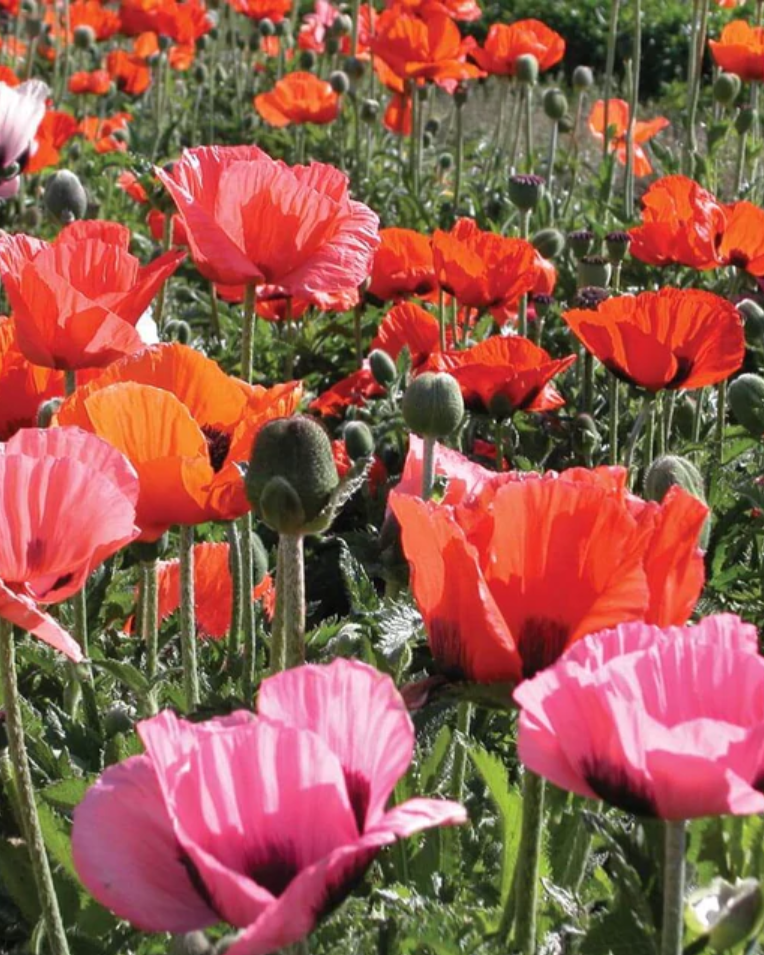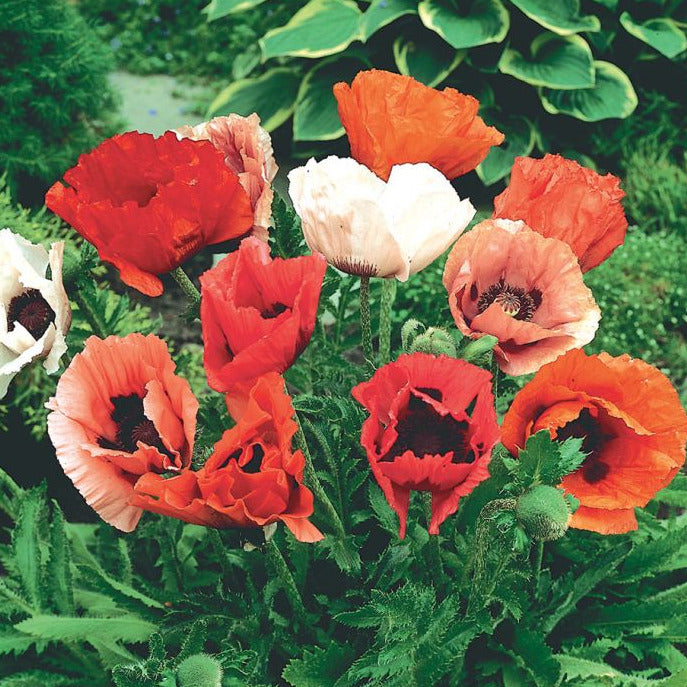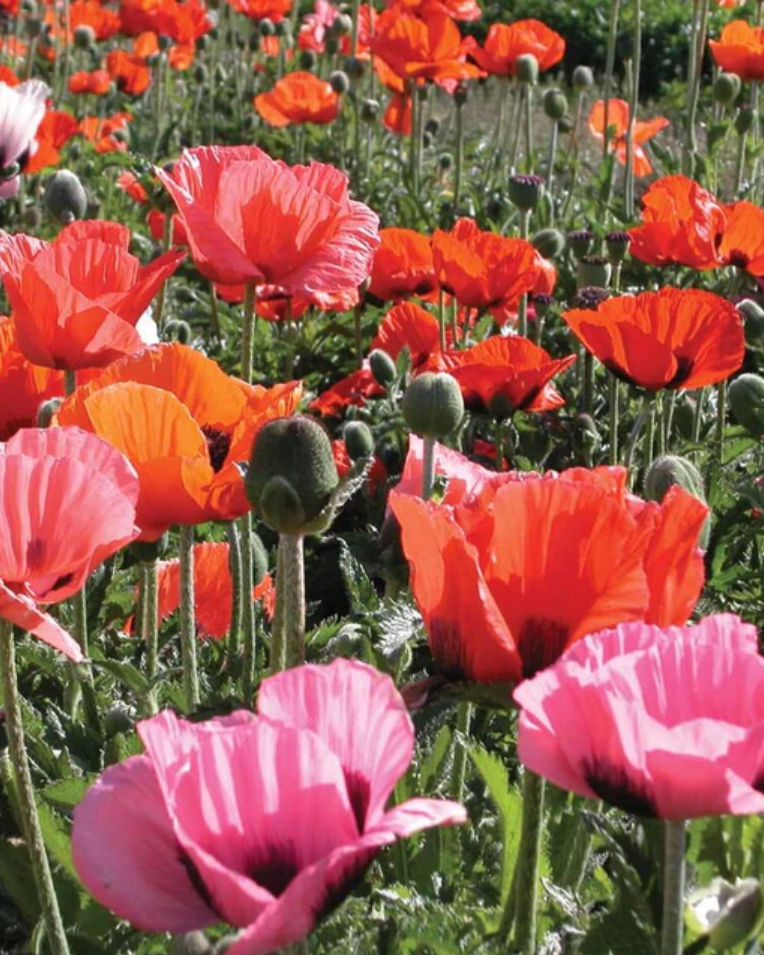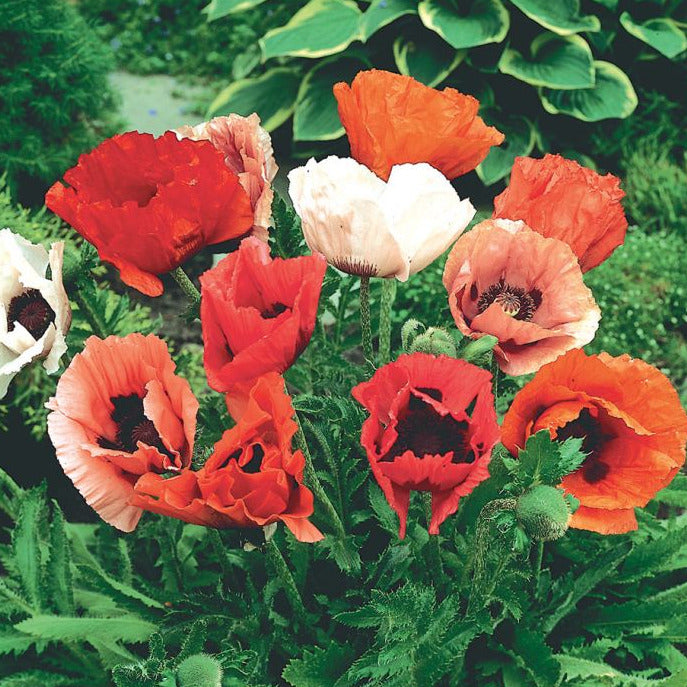Olive Seed Company
Poppy 'Pizzicato Mix'
Poppy 'Pizzicato Mix'
Couldn't load pickup availability
Semi-Dwarf Pizzicato Perennial Poppy (Papaver orientale)
Get ready for a spectacular show with the Semi-Dwarf Pizzicato Perennial Poppy! These truly eye-catching perennials are a highlight of the garden from late spring to early summer, boasting huge, silky-satin flowers. You'll enjoy a vibrant mix of colours, including shades of red, orange, white, and pink, all with the classic black centres. Planted in small groups, these blossoms will add a stunning "colour punch" to your borders and draw attention from all over. To ensure a bountiful display, take care to provide these heavy feeders with rich and fertile soil. The strong, upright stems also make these a fabulous choice for unique cut flower arrangements.
*Colours cannot be guaranteed*
DETAILS:
QTY: 50
TYPE: Annual; Self-sowing
SITE: Full sun
DEPTH: Surface; Do not cover
GERMINATION: 14-21 days at 16-18°C
HEIGHT: 15 - 18"
MATURITY: 80 - 90 Days
SPACING: 9 - 12"
PINCH: No
HOW TO GROW:
Direct seed (recommended): Sow seeds directly outdoors in late fall or early spring when there is still a chance of frost or light snow. Poppies generally do not transplant well due to their delicate root systems. Gently rake the tiny seeds into the soil surface; do not bury them as they need light to germinate. Water gently after sowing.
Transplanting (alternative, use caution): If you choose to start seeds indoors, sow them into compostable pots (like peat or coir pots) 6-8 weeks before your last expected frost. This minimizes root disturbance during transplanting. The seeds are very small, so bottom watering is recommended until seedlings emerge to avoid washing them away. Harden off seedlings for 7-10 days before transplanting the entire biodegradable pot into the garden after all danger of frost is past.
Soil Preference: Poppies thrive in full sun and prefer well-drained soil. They are not particularly fussy about soil fertility and can tolerate average to poor soils. Avoid heavy, waterlogged soils, which can lead to root rot.
Watering: Keep the soil consistently moist during the germination period and while seedlings are establishing. Once mature, poppies are relatively drought-tolerant. Water them deeply but infrequently, allowing the soil to dry out slightly between waterings. Avoid overhead watering, which can damage delicate blooms.
Fertilizing: Poppies generally do not require much fertilizer. In fact, too much nitrogen can lead to lush foliage at the expense of blooms. If your soil is very poor, you can amend it with a small amount of compost before planting. No additional fertilizing is typically needed once plants are established.
Self-Seeding: Although most common poppies (e.g., Shirley Poppies, California Poppies) are annuals, they readily self-seed in favorable conditions, often giving the appearance of perennial growth in subsequent years.
Shipping & Returns
Shipping & Returns


-
Free Shipping
Free Shipping on all orders in Canada over $125.00


